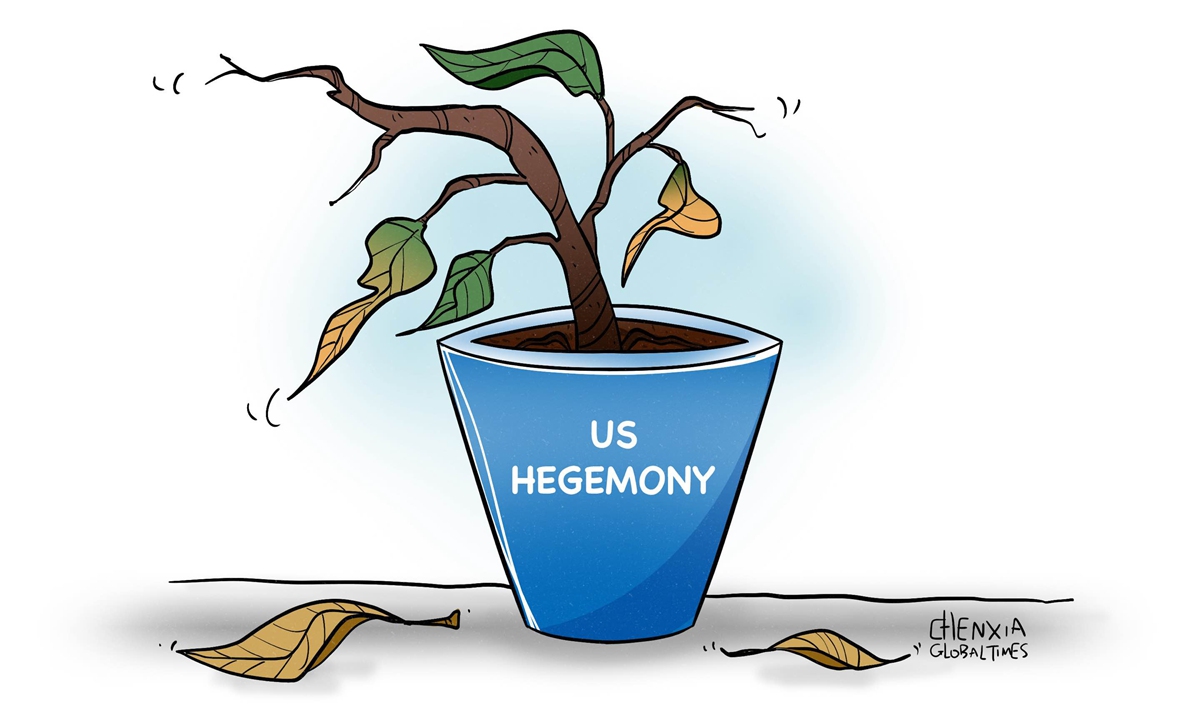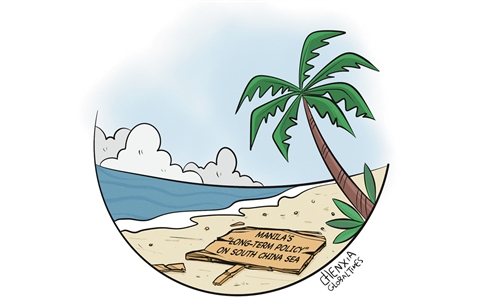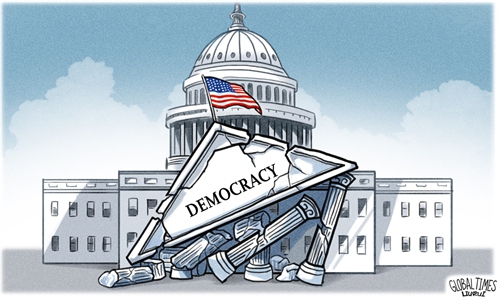
Illustration: Chen Xia/GT
"Where Have All the Geostrategists Gone?" This question headlines a recent article in Foreign Policy magazine, written in remembrance of the renowned American strategist Zbigniew Brzezinski. In fact, today's US strategic community is asking the same thing: Will there ever be another Brzezinski or another Henry Kissinger? Beneath this uneasy doubt lies a broader reflection of the rupture and disorientation in US strategic thinking in this era.
In the latter half of the 20th century, figures in US political circles like Brzezinski and Kissinger practically became synonymous with the concept of "grand strategy." They shared similar formative experiences - having lived through or witnessed the horrors of World War II and the tensions of the Cold War. Such a background helped forge their approach to geopolitical strategy with a global perspective in their horizons.
Does today's American society still provide fertile ground for such strategic thinking to emerge? The outlook is likely grim. On one hand, thinking beyond domestic partisan lines, grand strategists like Brzezinski and Kissinger were able to craft long-term international frameworks that served US enduring interests. However, the US strategic sphere is currently mired in fragmentation, emotionalism, and short-sightedness - especially as political polarization steadily erodes the space for rational strategic thinking. As a result, policymakers often reduce strategic planning to term-based policy proposals.
On the other hand, Washington's ongoing obsession with being the "center of the world" has increasingly made it intolerant of the complexities inherent in a multipolar world. This mind-set hinders the recognition of other nations, including those deemed "rivals" by the US, which is essential for effective grand strategy.
Li Haidong, a professor at the China Foreign Affairs University, told the Global Times that one of the key reasons grand strategists have become so rare today is the major transformation within the US itself. "Brzezinski and Kissinger both held real decision-making roles in government. During their time, US elites and the general public shared a common understanding of external threats. That unity enabled those geopolitical strategists to significantly influence US foreign strategy," Li said.
But today, as Li explains, the US educational and academic systems, as well as its political structure, have become chaotic - if not fractured. The elites can no longer reach a basic consensus on foreign policy, resulting in a loss of credibility among the general public and creating a significant divide between the two groups, according to the Chinese expert on US politics.
Li argues that both Kissinger and Brzezinski were not only strategic thinkers but also politically savvy, capable of translating their ideas seamlessly into actual policy. In contrast, many in today's US strategic community are stuck in empty theorizing and armchair discussions. "They continue to invent 'external enemies' to deflect attention from domestic problems, resulting in their assessments being detached from the country's reality," he said.
If we look at this from a broader perspective, the current lack of US grand strategists reflects an institutional "inability to think" in today's US. Since the end of the Cold War, the US seems to find itself constantly oscillating between strategic hubris and strategic confusion.
Brzezinski once warned: "If America continues to slide on an inclined plane in domestic policy and leads a short-sighted foreign policy, then its decline will definitely happen." This is a sober and deeply insightful warning, but will "crisis managers" and talk-shop intellectuals in today's US political circle ever listen to it?



